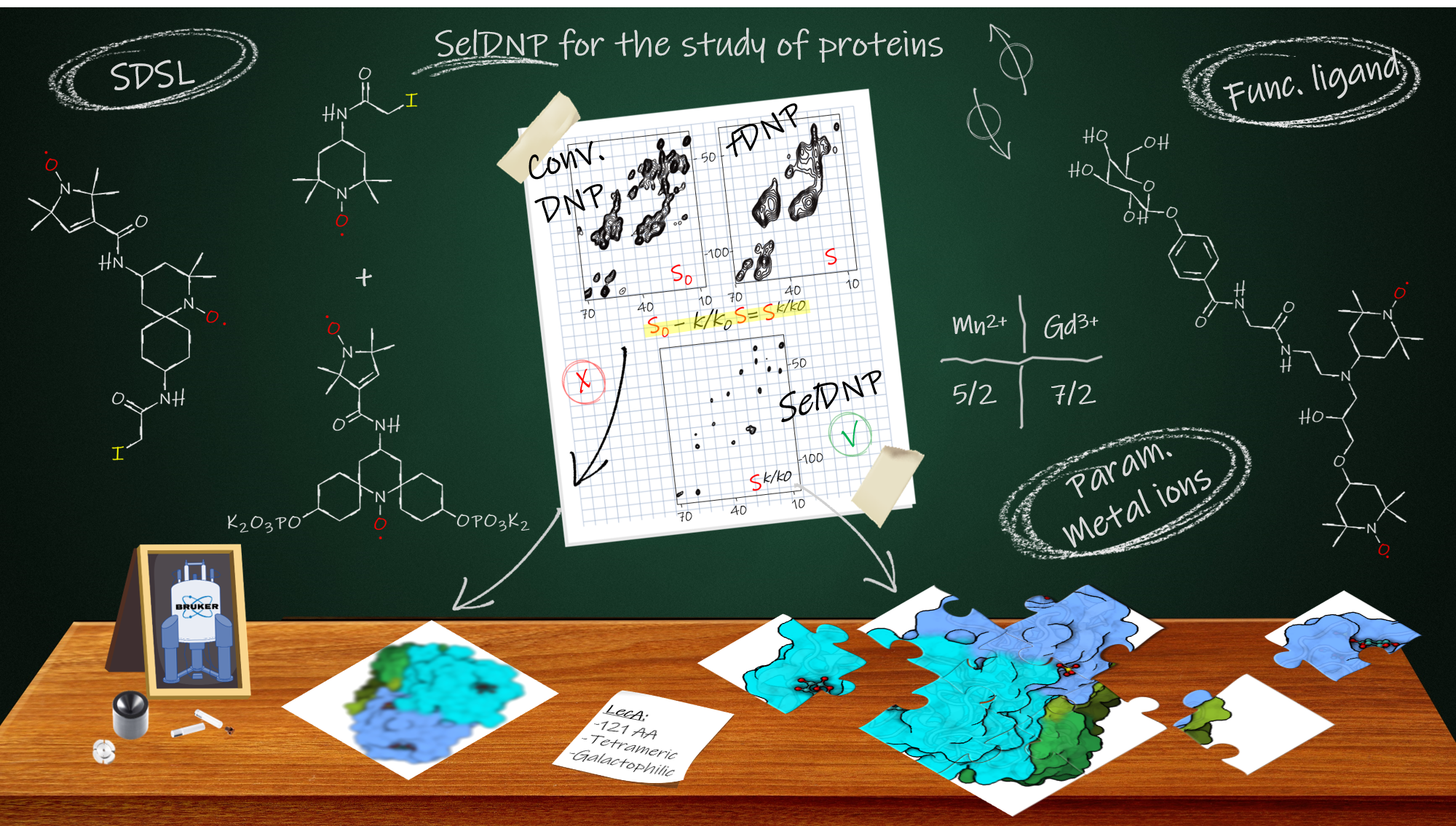MEM & CERMAV
- Share
- Share on Facebook
- Share on X
- Share on LinkedIn

Dynamic nuclear polarization (DNP) significantly improves the sensitivity of solid-state NMR by transferring the large magnetization of added unpaired electrons to the nuclei of the sample, thus increasing their NMR signal.
Unfortunately, biomolecules often show a strong broadening of NMR signals under DNP conditions. The broadening and the high number of detected signals prevent thus the separate identification of signals. During this PhD, we were interested in developing an alternative selective DNP method (SelDNP) to improve the resolution of protein DNP spectra by reducing the number of signals detected in the spectrum, keeping only those corresponding to a specific region of the protein. We developed different SelDNP strategies to extend its application to the widest range of biological systems.
D. Gauto, O. Dakhlaoui, I. Marin-Montesinos, S. Hediger and G. De Paëpe. Targeted DNP for biomolecular solid-state NMR. Chem. Sci., 2021, 12, 6223–6237.
R. Harrabi, T. Halbritter, F. Aussenac, O. Dakhlaoui, J. van Tol, K. K. Damodaran, D. Lee, S. Paul, S. Hediger, F. Mentink‐Vigier, S. T. Sigurdsson and G. De Paëpe. Highly Efficient Polarizing Agents for MAS‐DNP of Proton‐Dense Molecular Solids. Angew. Chemie Int. Ed., 2022, 61, e202114103.
Arcane PhD student
Ons Dakhlaoui
Supervisors
Sabine Hediger & Anne Imberty
- Share
- Share on Facebook
- Share on X
- Share on LinkedIn